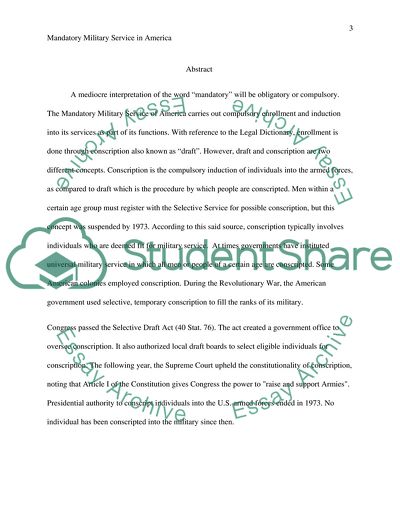Cite this document
(The Mandatory Military Service of America Research Paper - 1, n.d.)
The Mandatory Military Service of America Research Paper - 1. Retrieved from https://studentshare.org/military/1751427-mandatory-military-service-in-the-united-states
The Mandatory Military Service of America Research Paper - 1. Retrieved from https://studentshare.org/military/1751427-mandatory-military-service-in-the-united-states
(The Mandatory Military Service of America Research Paper - 1)
The Mandatory Military Service of America Research Paper - 1. https://studentshare.org/military/1751427-mandatory-military-service-in-the-united-states.
The Mandatory Military Service of America Research Paper - 1. https://studentshare.org/military/1751427-mandatory-military-service-in-the-united-states.
“The Mandatory Military Service of America Research Paper - 1”, n.d. https://studentshare.org/military/1751427-mandatory-military-service-in-the-united-states.


